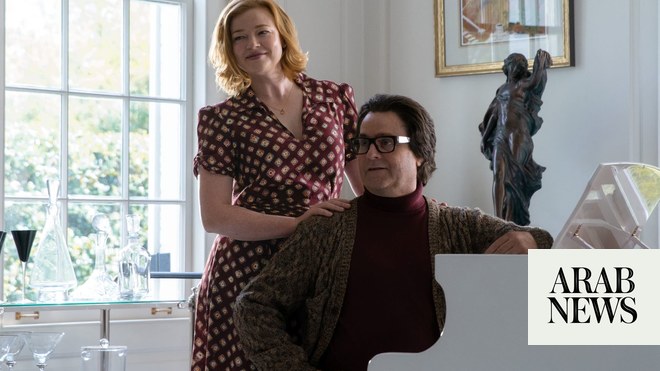
Two greyish-brown bronze figures stand on Trafalgar Square’s fourth plinth. Although both are much more than lifesize, one is unnaturally taller than the other; this is the only thing that deviates from the pair’s studied naturalism. So seamlessly do they blend with the other bronze statues, with Nelson on his column and Landseer’s lions, one might begin to think that this particular battleground in the culture wars had been won by the hang ’em, flog ’em, statue-loving heritage side. Instead of the melted ice-cream of Heather Phillipson’s The End, which recently vacated the plinth, we’ve now got patinated bronze and figures that could easily have been sculpted more than a century ago. Even their clothing belongs to the past.
In every other respect, Malawi-born artist Samson Kambalu’s embrace of the past, his play with conservative formal values, materials and the decorum of public statuary (which threaten to be as dull as the bronze itself) is a disguise. A sculptor of monuments, Kambalu is not. The two figures are based on 3D scans of live models, and made from resin, stainless steel and bronze-powder. The figures, as well as their clothing and poses, are based on a 1914 photograph of pan-Africanist Baptist preacher John Chilembwe and European missionary John Chorley, taken in what was then called Nyasaland, and is now Malawi.
The bespectacled Chilembwe holds a Bible behind his back while his white friend Chorley holds his glasses folded in his hand (this is a delicate and almost unnoticeable touch). For the original photograph, both decided to wear hats – Chilembwe’s broad-brimmed – on the occasion of the opening of the black pastor and educator’s new Baptist church. At the time, Africans were not allowed to wear hats in the presence of their then colonial rulers.
The following year Chilembwe was killed by the colonial police and his church burned to the ground after he led an unsuccessful uprising against British colonial rule and against the conscription of Malawians to fight German troops during the first world war. Today, Malawi holds an annual John Chilembwe Day on 15 January, celebrating him and the beginnings of the struggle for Malawian independence. Antelope, the work’s title, Kambalu told the Guardian recently, is derived from the fact that Chilembwe’s hat rises to two peaks, like antelope horns. The antelope is “the most generous animal in the bush, recklessly, stupidly generous”, he said.
Seen from below, the difference in relative scale between the two figures – Chilembwe is almost twice as tall as Chorley – accentuates the foreshortening, the sense of distance and perspective all the more. The figures appear to occupy a space far larger than the table-top size of the plinth itself. This was never apparent from Kambalu’s model. These differences and plays with perspective are about more than physical scale and are clearly symbolic. Facing away from one another, this could be a movie standoff, a momentary dramatic pause, a prelude to a fight. But maybe these two are on the same side, watching each other’s backs. I wouldn’t trust the other lot on their plinths across the square either. There’s drama here, a reckoning in the making. Bought home to the heart of what was once the British empire, and using the manners of all those forgettable statues to colonialist adventurers, it is also a reckoning with history.












